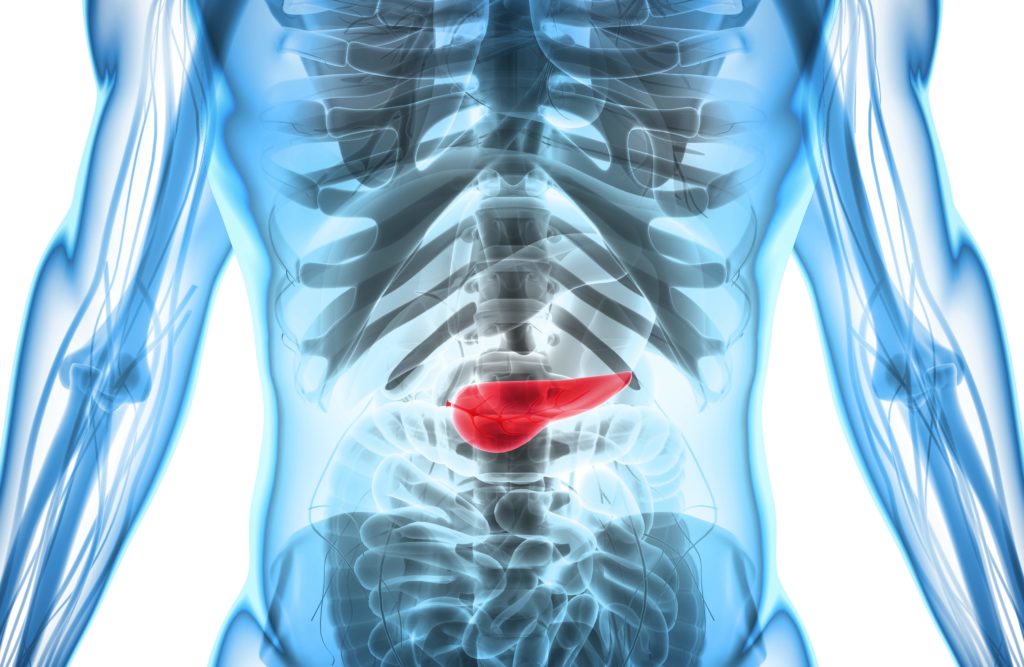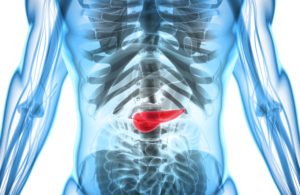 Difficulty in detecting pancreatic cancer makes effective treatment challenging, but not impossible.
Difficulty in detecting pancreatic cancer makes effective treatment challenging, but not impossible.
LOCATED BEHIND YOUR stomach, the pancreas is responsible for producing insulin, which regulates blood sugar and breaks down food so the body can process the nutrients.
Pancreatic cancer is one of the most lethal forms of cancer: The National Cancer Institute estimates there will be 53,670 diagnoses of pancreatic cancer and 43,090 deaths in the U.S. in 2017. Although the disease makes up only 3.2 percent of new cancer diagnoses, it results in 7.2 percent of all cancer deaths. Diabetes, obesity, and smoking increase the risk of pancreatic cancer.
While the five-year survival rate for pancreatic cancer is low, survival is 14 times more likely if the disease is caught in its earliest stage than if it is caught in stage IV.
DETECTION
Physicians rarely detect pancreatic cancer in its early stages in part because many of the early symptoms are too common to immediately suspect cancer. These symptoms can include abdominal and back pain, fatigue, jaundice, and weight loss. Another reason pancreatic cancer is difficult to detect is that the organ’s location in the body makes it impossible to manually feel potential tumors, a technique that sometimes helps doctors and patients detect other cancers such as breast or testicular cancer.
People with a family history of pancreatic cancer may be screened using an endoscopic ultrasound, though physicians and pancreatic cancer organizations don’t recommend this test for those who are not at high risk for the disease. In some cases, genetic testing can identify small changes to certain genes that may signal a need for testing.
RECENT ADVANCES IN CARE
Currently, surgery is the only option for curing pancreatic cancer, but conventional surgery is long and requires a large incision. New laparoscopic surgical techniques for pancreatic cancer may be appropriate for some patients and offer a faster, more comfortable recovery. If curative surgery removes the pancreas entirely, the patient will develop diabetes because the body lacks the ability to produce insulin.
Although pancreatic cancer is often resistant to chemotherapy, new combinations of drugs as well as using chemotherapy in conjunction with radiation therapy, may provide more flexible treatment options in the near future.
Research into earlier detection: Urine testing and blood testing may soon make it possible to detect pancreatic cancer accurately and more easily.
Palliative care: A new drug treatment has shown promise in extending the lives of patients with metastatic pancreatic cancer.


